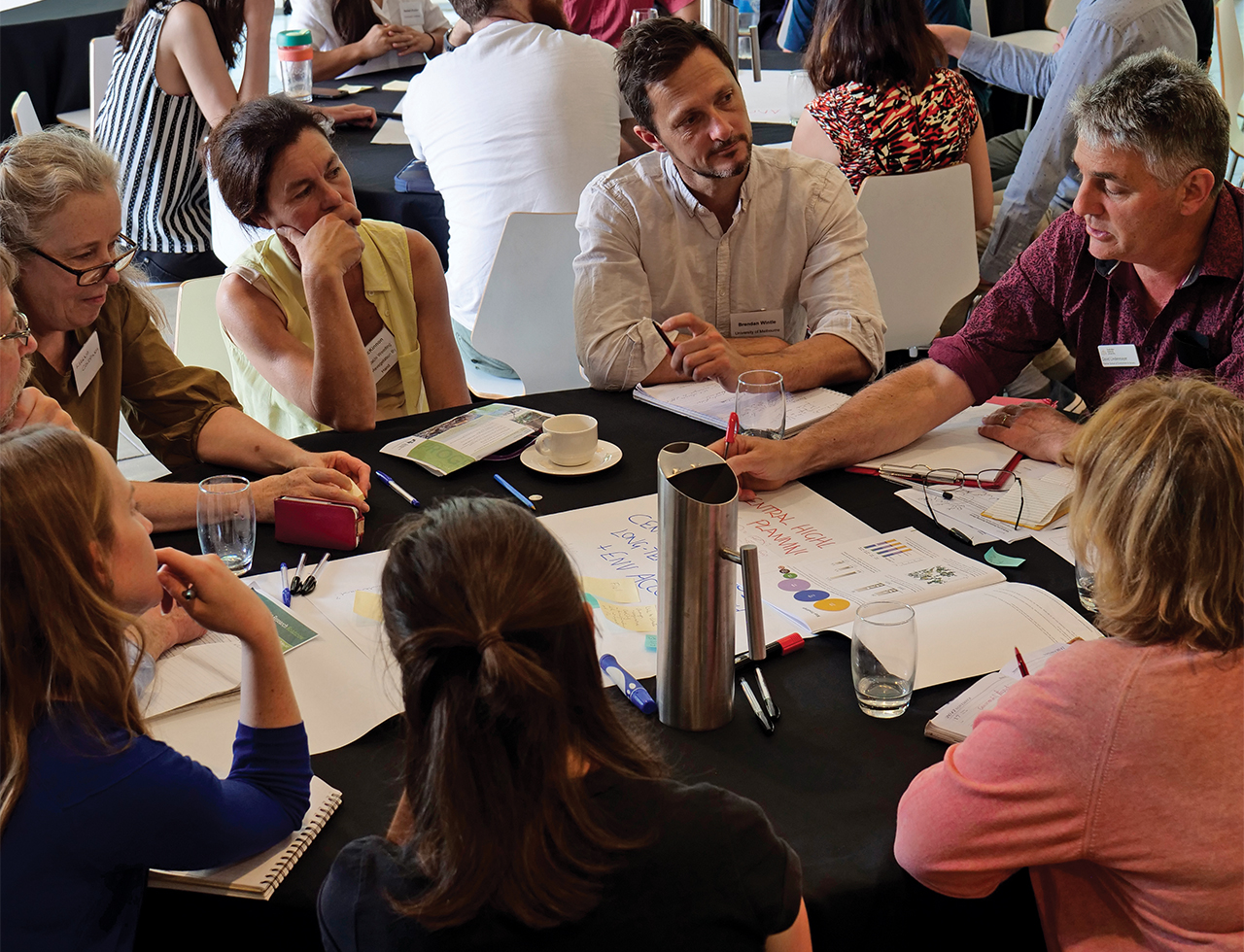
Producing science for policy
Thursday, 11 March 2021You’ve done some cutting edge research, but will it make a difference? Dr Rachel Morgain of The Australian National University and Professor Martine Maron of The University of Queensland talk about what researchers need to know about engaging with policy-makers.
Conservation researchers are a passionate bunch. We don’t just do what we do because we love the species and ecosystems we work on. We want to do research that helps them. We want what we discover to support better decisions about conserving biodiversity. And, ideally, we want to see the basis of these better decisions embedded systematically. In other words, we want to impact policy.
“Policy” generally refers to a broad range of mechanisms and systems implemented by government agencies at all levels (and non-government organisations too) to address specific issues. It includes regulation, planning, legislation, strategies, program design, evaluation, agreements, and decisions related to government funding and investment.
One of many factors
There is wide agreement among policy-makers and researchers that policy should be informed by research evidence. But it’s important to recognise that scientific findings are just a part of a much larger ecosystem of values, laws and wider knowledge that influence policy. This generally includes social values, competing needs and priorities, constitutional responsibilities, interjurisdictional agreements, existing legislative frameworks and international obligations.
Policy must also be robust enough to address messy reality. Policy ideas can be elegant and sleek, internally consistent, and promise effectiveness and efficiency – then fail to survive in the “wild”. They need to be implementable.
So if you are a researcher, you already know you have to make your work accessible and explain its importance in plain language. But what else do you need to know to produce research for policy? Our hub has recently produced the Connecting Research with Policy guidelines to help researchers seeking to engage policy-makers.

Here are some of the key tips:
1. Learn the context and who to engage
Learn as much as possible about your policy context: how is responsibility distributed between jurisdictions and agencies? What are the constitutionally defined responsibilities between the Commonwealth, states and territories? What other agreements or related policies are in place? What other non-government, business or community players have a stake?
2. Work closely with policy stakeholders
Contact important policy stakeholders and offer to discuss your research and discuss ideas. Offer to give presentations in a format that suits them. Often an interactive presentation, with plenty of opportunity
for discussion and questions, is better than a formal talk.
Ask whether a tailored piece of research or tailored product for policy would be helpful, and in what form. Work with policy partners throughout, listen to them, and seek their input at all stages – they likely have valuable insights into any number of issues material to what you are developing, such as what is currently feasible, constitutionally possible, or has been tried in the past.
Communicate regularly.
3. Time it well
Research has to be timely as well as relevant. Your research is most likely to be considered and to have impact when a policy, strategy or legislation is in formation or under review. If you present your findings after a policy has been finalised and announced, you are not likely to influence it until it is next due for review.
Regular communication with relevant policy teams is a good way to keep an ear open for these timely opportunities. Keeping policy-makers informed of your key research areas also allows them to contact you if and when your research becomes timely.
Parliamentary committee reviews, inquiries and other processes that ask for public comment are another great opportunity to share your research at an opportune moment. The reviewers generally have a very narrow remit and may receive hundreds of submissions, so focus clearly on the terms of reference.
4. Spell out options and implications
Research papers are renowned for stating “this has policy implications” without drawing these out in a way that can be readily understood and used by policy-makers. Spell out the implications of your research
for potential policy or management options and the likely consequences (including perverse outcomes) that could arise from particular decisions.
If proposing policy change, make clear: a) the policy objective that could be better achieved; b) a summary of the evidence for the shortcoming; c) the reasons for the shortcoming; and d) options for addressing the shortcoming, with a summary of supporting evidence.
5. Be patient
Policy change is a long game. Most research on the subject suggests it can take 10–20 years for major new insights to be taken up in policy in significant ways.
Turnover in policy-relevant positions can also be high, so be ready to engage new people, and don’t assume that they are aware of the background discussions you’ve already had.
It is heartening to see the importance of research impact increasingly recognised in indicators of research quality. Effectively working with policy stakeholders takes time – time which may seem hard to prioritise within academic frameworks, which have typically rewarded a focus on academic publishing. However, it is time well spent if you want your science to make the biggest difference to the biodiversity challenges you are working to solve.
The past six years of the Threatened Species Recovery Hub have underscored the commitment and passion of a wide range of policy-makers and policy users across Australia for engaging with the research community. We are fortunate in the hub to have many policy partners and established processes for connecting with the right people. The legacy set in train will, we hope, last for many years more.
Further information
Rachel Morgain
rachel.morgain@anu.edu.au
Martine Maron
m.maron@uq.edu.au
Top image: Hub researchers discussing the policy implications of research related to the Victorian Central Highlands with stakeholders at a hub workshop in Melbourne, 2017. Image: Jaana Dielenberg